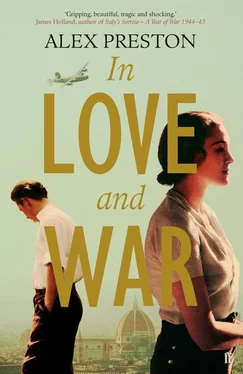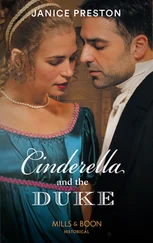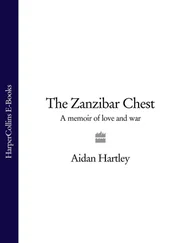In his room alone later, slightly drunk after an hour in the library with his father, he places the collage on his dresser and pulls up his chair to look at it again. His life appears, tessellated yet suddenly coherent. The three blond children crouched around the crease during a cricket match on the lawn at Aston Magna. Cook is at bat, a set expression on her face as she waits for Sir Lionel to bowl. Esmond and Anna on a carousel in Hyde Park. She must be four or five, her blonde hair spilling out from beneath the dome of a cloche hat. He is behind her on the horse, looking serious and responsible. A line-up of young Blackshirts, Esmond at one end, smaller and blonder than any of the others, his chest out, chin up. Esmond and Anna and Rudyard in the various arrangements of childhood, their father proudly with them, their mother more distant, always looking off as if keen to get on to some urgent appointment. Towards the bottom of the collage, more recent pictures: the pantechnicon van unloading in front of Welsh Frankton; Esmond in a straw boater by the river in Cambridge. In the very centre, the sun around which the other pictures orbit, is a large photograph of Esmond and his father in full British Union uniform, lightning flashes bright on their chests. They are on-stage at the Royal Albert Hall. It was 1934, Sir Lionel’s last great political speech. He’d chosen Esmond to stand with him on the platform beforehand in front of the thousands of faces. — This is my eldest son, he’d said, holding his good arm towards Esmond. — This is who I fought my war for. It’s why I’m here now. To build a future for young men like Esmond, a future in which there can never be another war like 14–18, a future where honest, decent folk who want to earn a living may do so. We are moving — he’d looked around at the massed ranks of Party members — towards a moment of reckoning. Choose the right side . He seized Esmond’s hand and lifted it into the air. Choose Esmond! The crowd let out a roar, Esmond had tried to force a smile, the camera flashed.
The next morning, his father comes into his room early. — We decided not to hunt, he says — Really? Esmond sits on the side of his bed. — I know you can’t bear it. You’re our guest of honour. Sir Lionel goes to look at the collage on the dresser. — We lost her for hours making this. Covered herself in glue. I’d forgotten that photograph, you and me at the rally. It’s rather good, isn’t it? He comes to sit beside Esmond on the bed. — Things aren’t as easy as they might seem back here, he says. I fear Mosley’s made some bad decisions. Circumstances are moving against us. Your mother and I— There have been rows. She’s been talking to Diana, to Mick Clarke, all of them helping to clarify my faults. I simply won’t have us allied with the Germans. Mosley’s still on my side, most days.
He’s looking down at his hand, frowning. — Your success, Esmond, it gives me the advantage in these negotiations for the future of the Party. That we can forge a future that is cultured, civilised, peaceful. I point to the fact that Radio Firenze is ten times more successful — in numbers and in contribution to Party funds — than these lunatic broadcasts coming out of Heligoland and Sark . He stands, ruffling Esmond’s hair. It also gives me hope, he says, to have you, my eldest son, out there, making a difference. It helps me believe there’s a future worth hanging around for.
They all come to see him off at the station. The collage, back in brown paper and string, is on the seat of his compartment. He presses his face to the upper window as the train moves off and he sees the four of them standing there, Anna with her arm around their mother, who is inexplicably crying, his father waving furiously, Rudyard kneeling down with a dog and looking on. It strikes him, as the train gathers speed and moves out of sight, that Rudyard’s eyes are the mirror of his own, identical in shape and shade. He sits down, pulls out The Brothers Karamazov, and begins to read.
[Postcard from Lyme Regis]
31st January
Dearest E –
Presume you’ve heard about Auden and Isherwood going off to America. Father is over the moon, as you can imagine. Proves that the younger gen of leftie writers has no spine. It is rather feeble of them, don’t you think? To flee when we need writers, poets, men and women who can make sense of the world. I was reading Auden after you left. I thought: a poet is a stranger who knows one’s secrets.
One of daddy’s friends suggested I take the seaside air for my asthma. It’s frightful here. The unanimous elderly, wandering along the front as if they might walk themselves away from death. Luscious to see you at Xmas. Do come back more often.
Brisk, deep-lunged oodles,
Anna xxx.
Faber & Faber
24 Russell Square,
London, WC1
4th February, 1939.
Dear Esmond,
I’m sorry it has taken me so long to get back to you. I’m very much aware that you’ve been waiting for a reply and it is inexcusable that it has taken us these months to come to a decision.
I’m afraid the war passages haven’t much improved as far as I can see. It’s as if, as soon as Hulme crosses the Channel, a veil comes up over him and your ability to feel your way into his experience evaporates. It’s really very sad. I showed this to Tom Eliot — to make sure I wasn’t being blind — and he agreed wholeheartedly. It’s difficult for a writer your age to capture something so raw, so violent, so far outside his own space. Has your father read it? What does he think?
There’s also the problem of a certain resistance within some parts of the company to publish an author so closely associated in many minds with the Fascists. Things have changed in the national atmosphere since I first read In Love and War. Since we became aware of the horrors executed by the National Socialists, the bloodiness of Mussolini’s regime (so wonderfully set out in Ignazio Silone’s Fontamara — have you read it?), it feels like a madness to publish a novel which — if we look behind the curtain of the fiction — is the elevation of a Fascist (or proto-Fascist) to a position of mythic heroism.
I’m sorry to be the bearer of bad news. You’re still very young and do please send me your work as it develops.
Sincerely,
Richard de la Mare.
Via dei Forbici, 35c
Firenze
17.2.39
Dear Esmond –
A thousand thanks for your visit. I know that Ada put you up to it, and I know what a miserable and pathetic creature I must seem, but to have had everything ripped away from me like this— My good friend Friedrich Kriegbaum, from the Kunsthistorisches Institut, visited the night before last and I could barely stand to have him in the house. ‘The annihilation of the Jewish race in Europe.’ It is shameful. It is as if I was walking in darkness and suddenly a light of impossible brightness has been shone upon me. I am blinded again, but this time it is the force of the light that has taken away my sight.
I’m not sure what will happen to me, Esmond. I wrote some ill-advised letters in my madness. I wrote to Il Duce himself, I wrote to the German Consul, I think I even wrote to Herr Hitler. If the worst should occur, look after Ada for me. Her mother has travelled north to stay with relatives in Switzerland. I’m determined not to be chased out of this city I love, but I may have little choice in the matter. I couldn’t bear it if my idiocy should lead to something awful happening to Ada.
With my apologies for my weakness and stupidity,
Guido Liuzzi.
Telegram: 7/4/39
Anna condition serious STOP At John Radcliffe seeing specialist STOP Your mother with her STOP Will keep you posted STOP
Читать дальше












